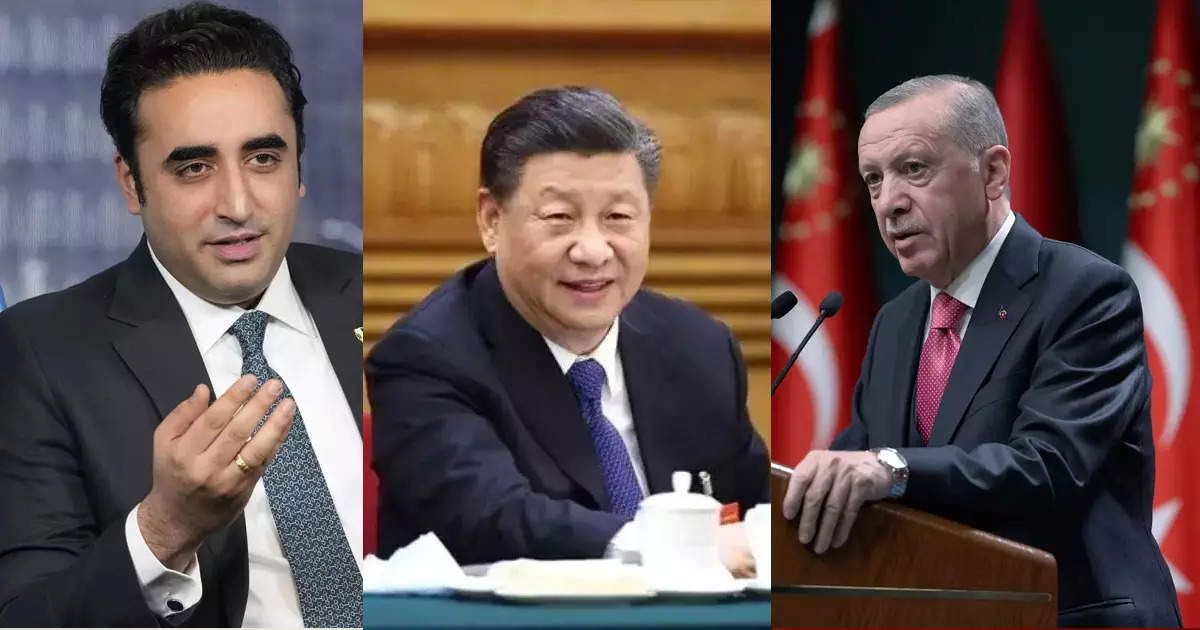
It is called falling between two stools. Pakistan has opted not to attend the Democracy Summit of March 29-30, being hosted by the United States because “China will be monitoring” its proceedings.
The decision not to attend the virtual summit that began in Washington on March 29 was weighed with fears of displeasing the US when the economic bailout from the International Monetary Fund (IMF), prolonged by weeks and months, is direly awaited.
On the other hand, Islamabad is wary of ‘annoying’ China, the “all-weather friend”, which is likely to figure in a negative light in the Washington moot, given the Biden administration’s relentless campaign against Beijing.
Dawn newspaper (March 28, 2023) reported that Beijing would want Pakistan to opt out of the ‘controversial’ moot “but doing so will send negative signals to the US at a time when Islamabad wants Washington to be on its side to help secure a deal with the IMF.
Pakistan has ostensibly decided to stay closer to China than the US’s “democratic values.”
“The issue of Pakistan’s participation in the Second Summit for Democracy in the US had been under discussion for some time, particularly because it could potentially upset its “all-weather friend” China, which had not been invited to the summit.
“The decision had been challenging, with Pakistan weighing the benefits of participation against the potential risks to its diplomatic relationships,” Dawn newspaper reported (March 28, 2023).
Last December (December 8, 2022) the newspaper quoted the Foreign Office spokesperson that decided to engage with the US on democracy at an “opportune time in future.”
The spokesperson said on March 28 that Pakistan had decided “instead to engage with the US on a bilateral basis to encourage democratic values.”
China would be closely monitoring these overtures as the US “has already annoyed Beijing by inviting Taiwan, China’s long-standing nemesis.”
Pakistan’s other issue is being seen in comparison/contrast with rival India. India attended both summits, while Pakistan has now absented itself from the
second summit also.
The first decision not to attend the first summit in 2021 was governed by a different consideration. It did so, “reportedly on the back of the Biden administration’s refusal to reach out to the then-prime minister Imran Khan.”
Khan had publicly protested not receiving “even a phone call” from Biden, a year after the latter had become the US President. Khan attended the UN General Assembly, but Washington did not invite him for a bilateral meeting.
Records say Biden never met Khan, but his administration has treated Pakistan differently since his ouster by meeting then Pakistan Army chief, General Qamar Javed Bajwa and later, Foreign Minister Bilawal Bhutto Zardari.
Take another consideration: “Pakistan stays away from the moot because another ally, Turkiye has not been invited. It is “another cause of concern for Pakistan,” the newspaper said. According to the Dawn report, the decision to keep Turkiye out of the summit was another cause of concern for Pakistan.
In a statement issued today, the Foreign Office said Pakistan values its friendship with the United States. “We remain committed to further solidifying this relationship for peace, stability, and prosperity in the region,” the statement said.
Explaining the rationale for not taking a part in the summit, the FO said Pakistan “required countries to make certain national commitments,” on human rights and fighting corruption. The spokesman maintained: “As a vibrant democracy, the people of Pakistan are deeply committed to democratic values and generations of Pakistanis time after time have upheld their faith in democracy, human rights and fundamental freedoms.”
The spokesman also underlined that the nation was “celebrating the 50th anniversary of the 1973 Constitution which is the fountain of a democratic polity in Pakistan.”
There is yet another reason, a domestic one, to keep away from the Washington summit that has set democratic standards.
“The integrity of a country’s elections — in other words, the degree to which they conform to international standards — is important for a government’s legitimacy, as well as domestic and international support,” the summit document says. Pakistan’s ongoing political turmoil is over when and how to hold credible elections due this year, and the matter is before the country’s Supreme Court. (Ends)






